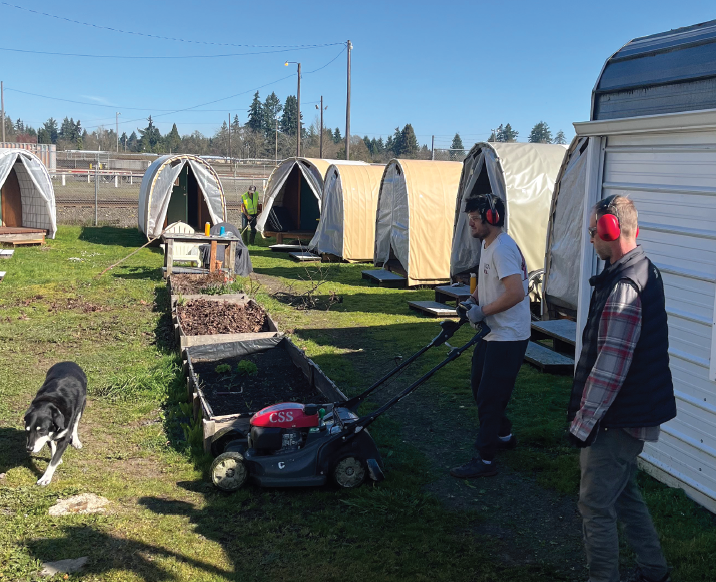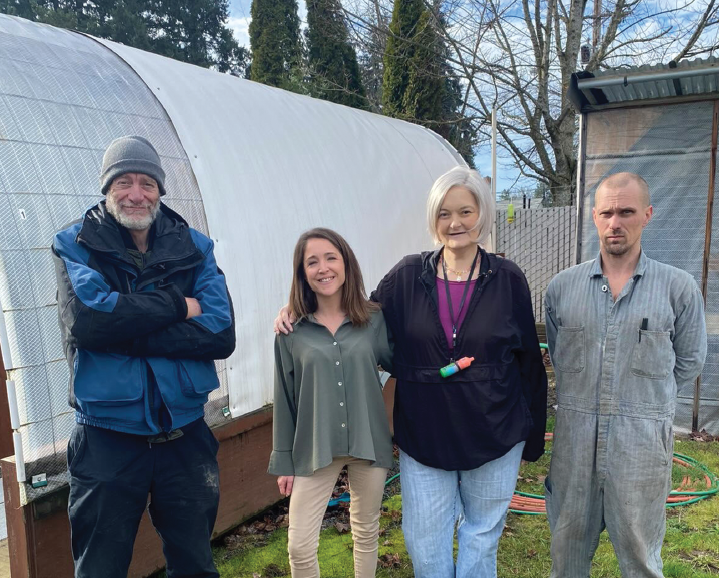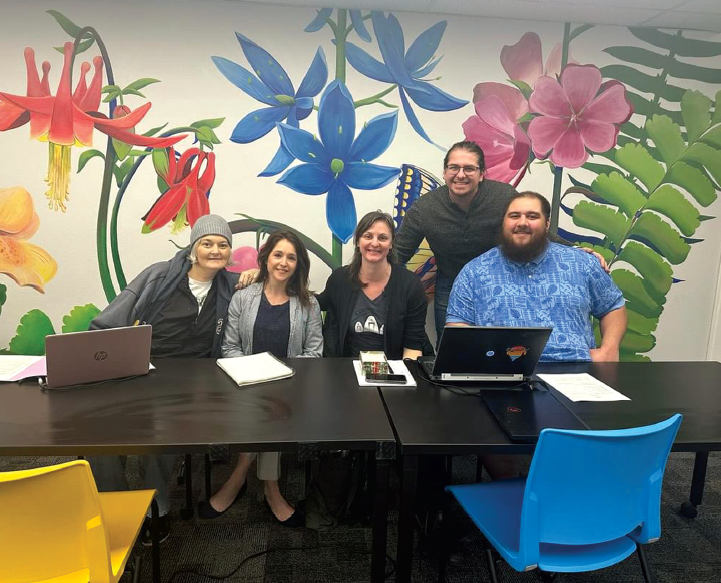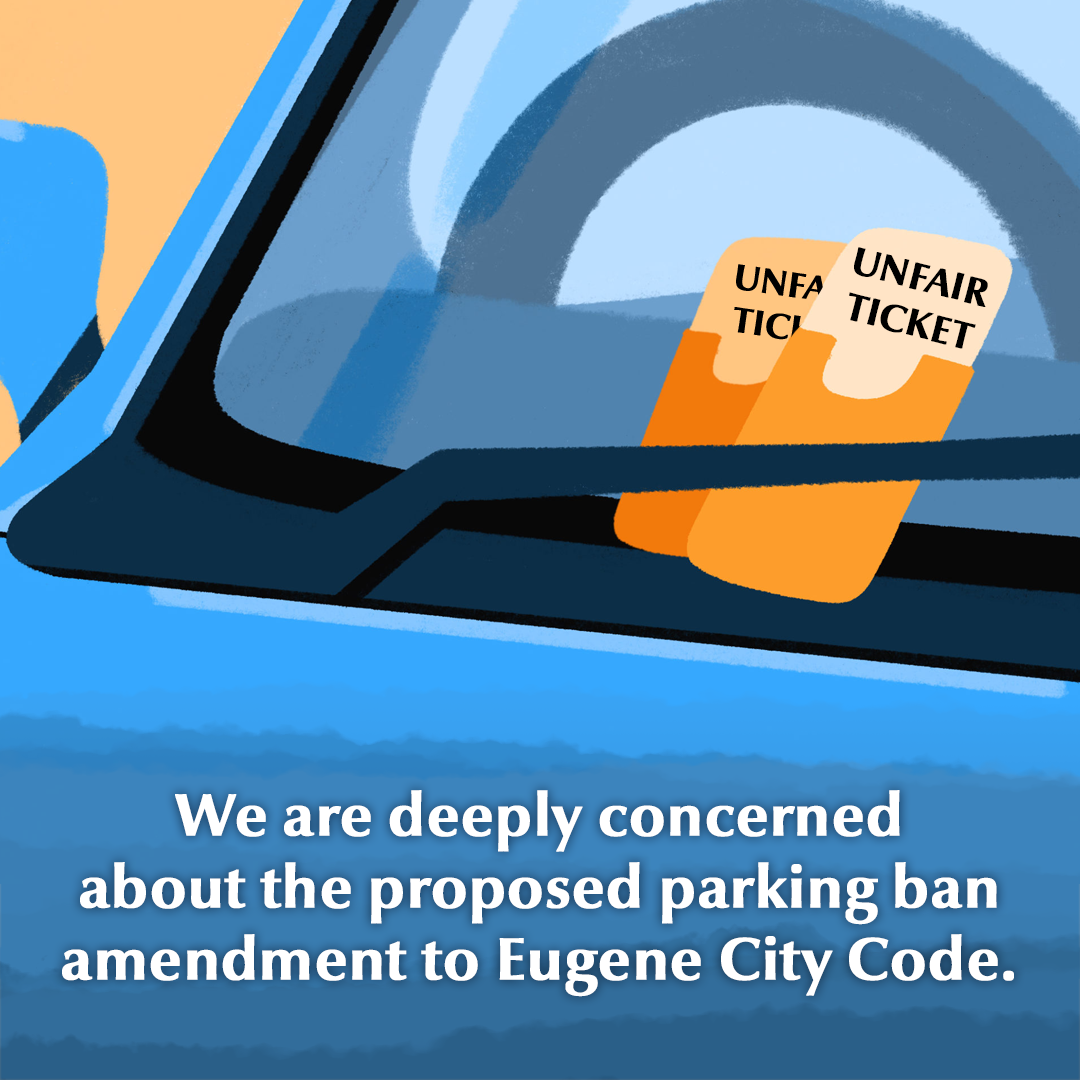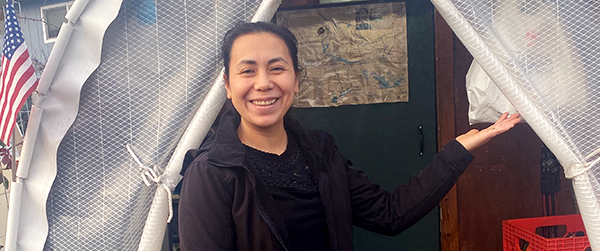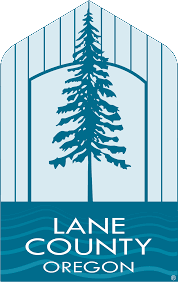News & Events
To stay connected and learn about upcoming events, subscribe to our quarterly newsletter and follow us on social media.
If you are a member of the media who is seeking information or would like to request an interview, contact community@cssoregon.org.
Community Court Program
By Guy Maynard and Blake Burrell
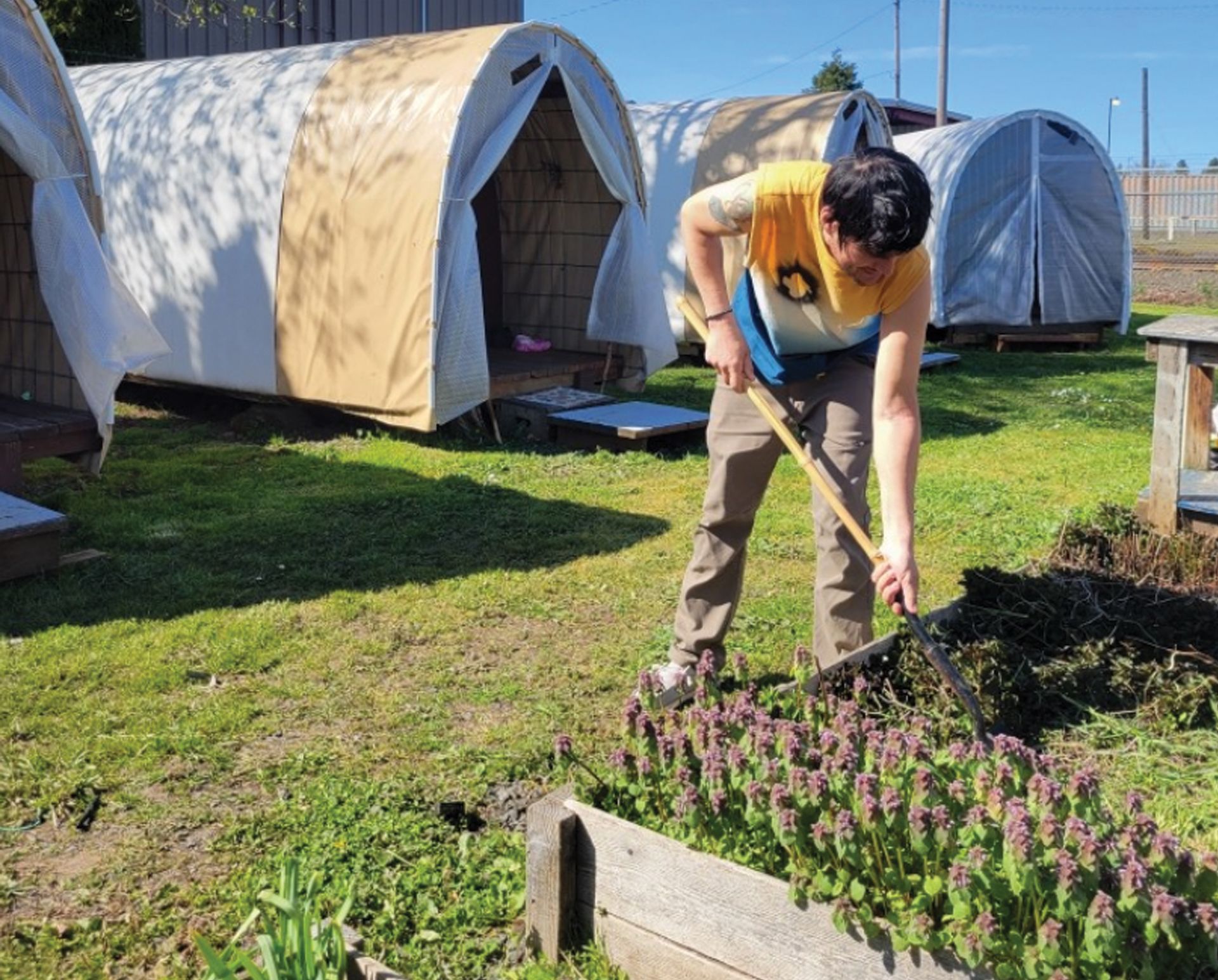
Community Supported Shelters’ Roosevelt Safe Spot Community has been transformed into a shelter community aligned with the City of Eugene Community Court program. Beginning in January, people charged with minor misdemeanor offenses who have opted into the Community Court system (rather than Municipal Court) can opt into the CSS shelter program and move into one of 16 available Huts at Roosevelt.
The Community Court program funded by a four-year, $600,000 grant from the federal Bureau of Justice Assistance aims to support individuals experiencing homelessness by providing a stable shelter alternative. The project connects shelter and targeted support to unhoused people charged with misdemeanors like trespassing, park rule violations, prohibited camping violations, and other non-violent offenses.
Participants are identified through assessments that consider prior conviction and other life factors and needs by court staff and the local service providers they work with. The stability and support the program provides help them maintain compliance with the requirements of their court case plans. CSS staff partner with direct service professionals and court case management staff who offer services to potential clients at the Community Court and provider room following court proceedings. Laurel Hill, which offers mental health services, and Emergence, which provides addiction and behavior therapies, are currently CSS’s primary partners
“The Community Court team has been welcoming to our team, and we are honored to provide shelter to their program participants,” says Blake Burrell, CSS Director of Community Impact. “Shelter is an essential piece of the puzzle. If someone engaged in a court case plan does not have shelter, the barriers to appearing at court compound and the individual may receive more citations and fines associated with experiencing unsheltered homelessness.
“This program is an opportunity for Community Court to partner with a sheltering organization to achieve shared goals to provide basic needs, provide mental health and healthcare referrals, housing support, legal support services, and employment support.
“The idea is that they would leave that high-risk category, stabilize, and stop receiving those minor misdemeanor offenses,” Blake says.
Though CSS’s primary role is as a shelter provider, community members who come through the Community Court program still have access “to all of our social service and housing navigation services,” Blake says. Other attributes of typical CSS communities, like weekly meetings and a common set of rules, still apply to this community.
But there are differences. “The community court model is you enroll in a case plan, you get a court case manager, you put in volunteer hours. and then engage with various mental healthcare providers,” Blake says. The minimum stay is six months, at which point the community members may be transferred to one of the other CSS communities.
Working with Community Court requires more reporting and engagement with other service providers, Blake says. But CSS Community Facilitator Rachael Ridel, who serves the Roosevelt Community, says, “We’ve got a big old team” learning to make it work. Codie, CSS Service Navigation Manager, is a dedicated case manager for Roosevelt, one of only two CSS sites to have a person in that role.
The Community Court approach to volunteerism is something CSS would like to extend throughout CSS. Called community enrichment, it’s a requirement for participants, who must complete 8 or 16 volunteer hours over the course of their case plan. “What's really cool about this is we are now responsible for their community. So their volunteerism is actually a reflection of things that we usually do on-site. So we have volunteer opportunities for folks to help out around camp, support our nonprofit, support the function and beauty of this site, but then also things that are really practical like participating in our work party and doing things like getting wood inventory to support our community."
The collaboration among the Community Court staff, service providers, and CSS has been beneficial for all, Blake says. “We get to shed light on some of the more positive aspects of being a shelter provider. We bring a humanistic lens into the process. It’s been really exciting.”
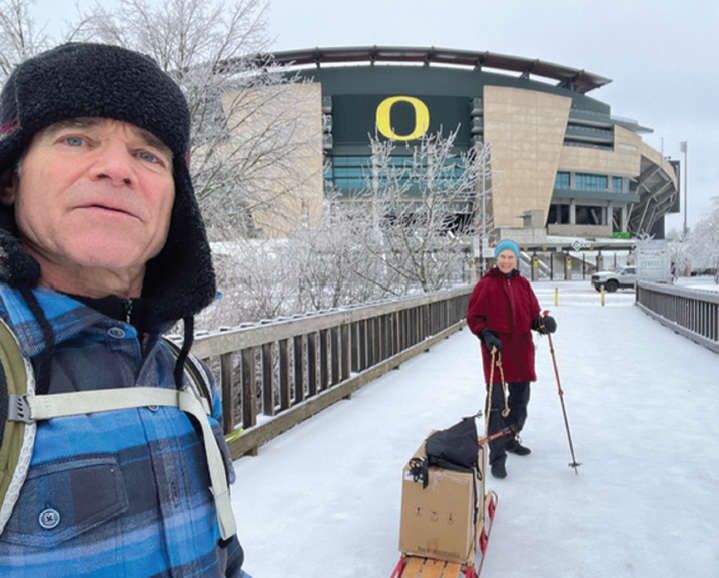
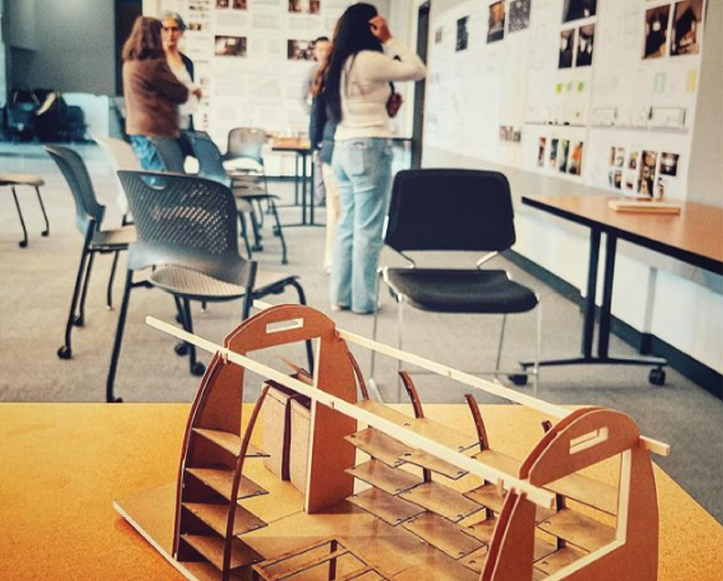
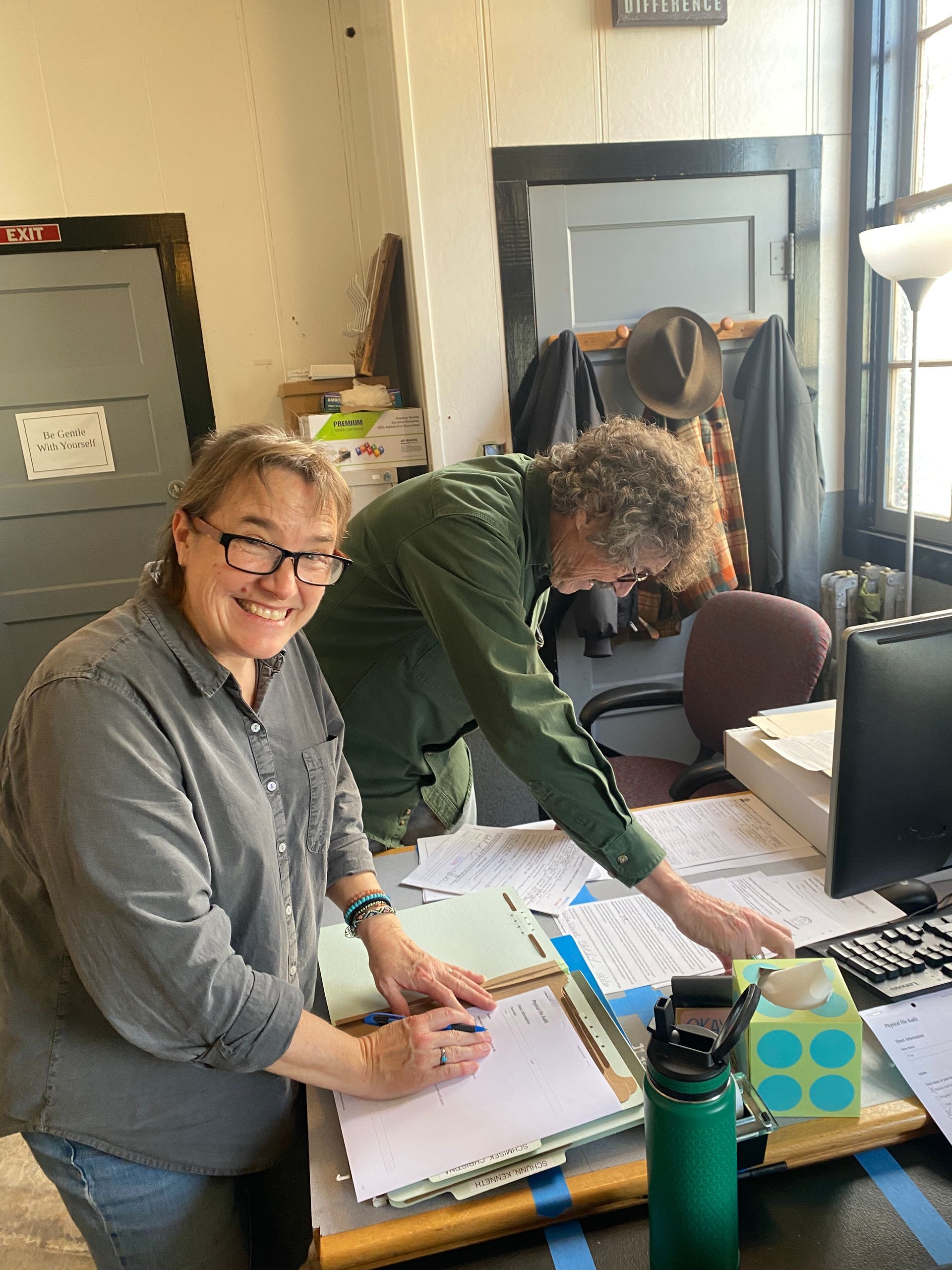
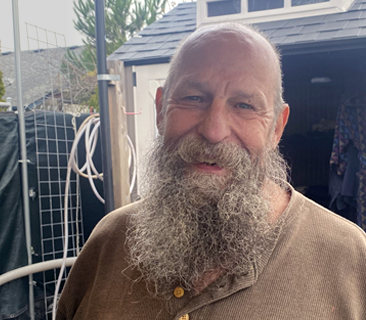
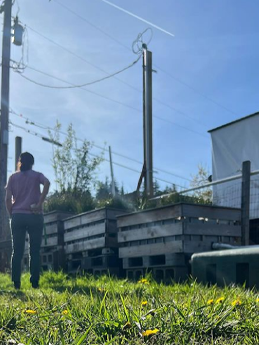
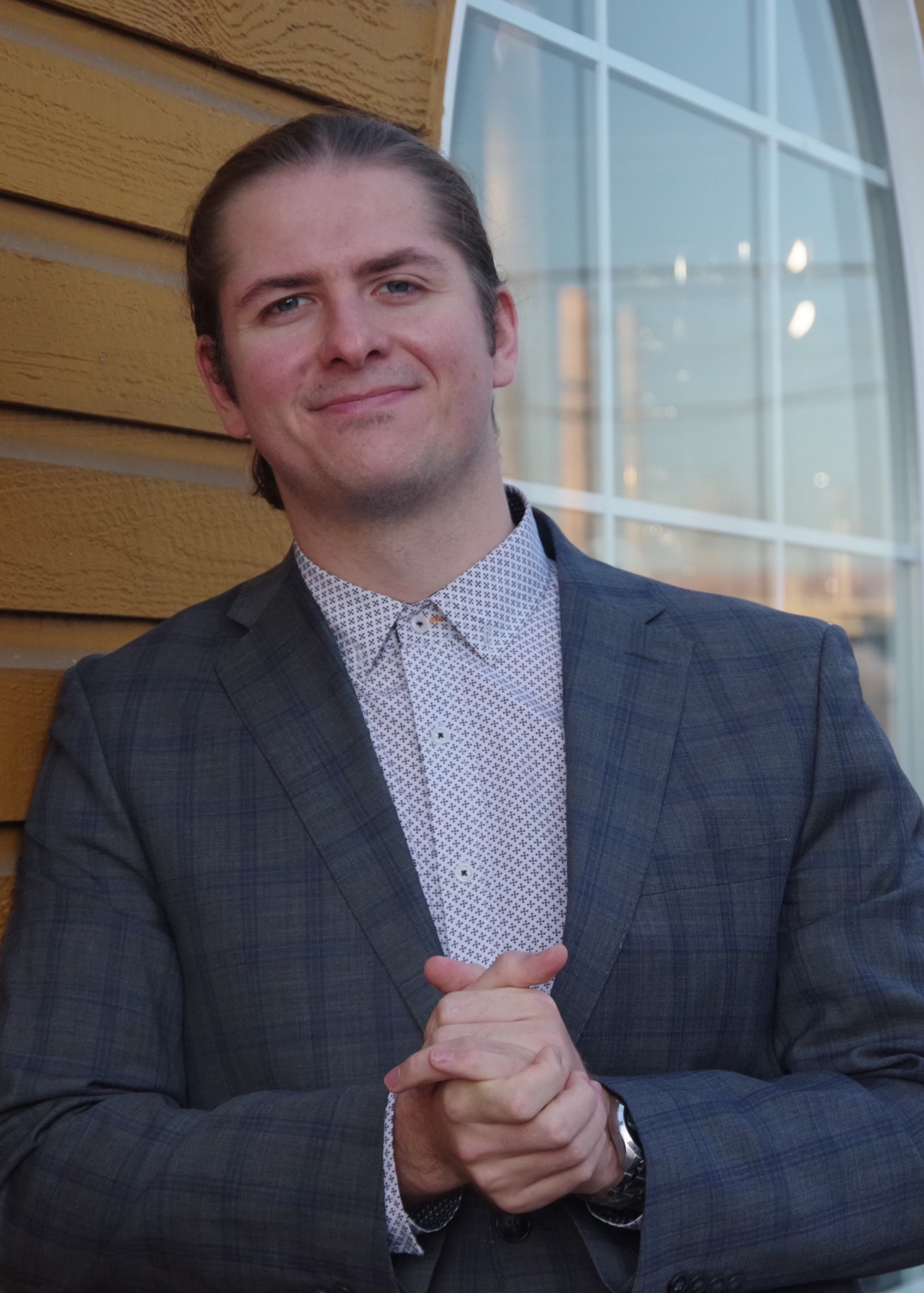
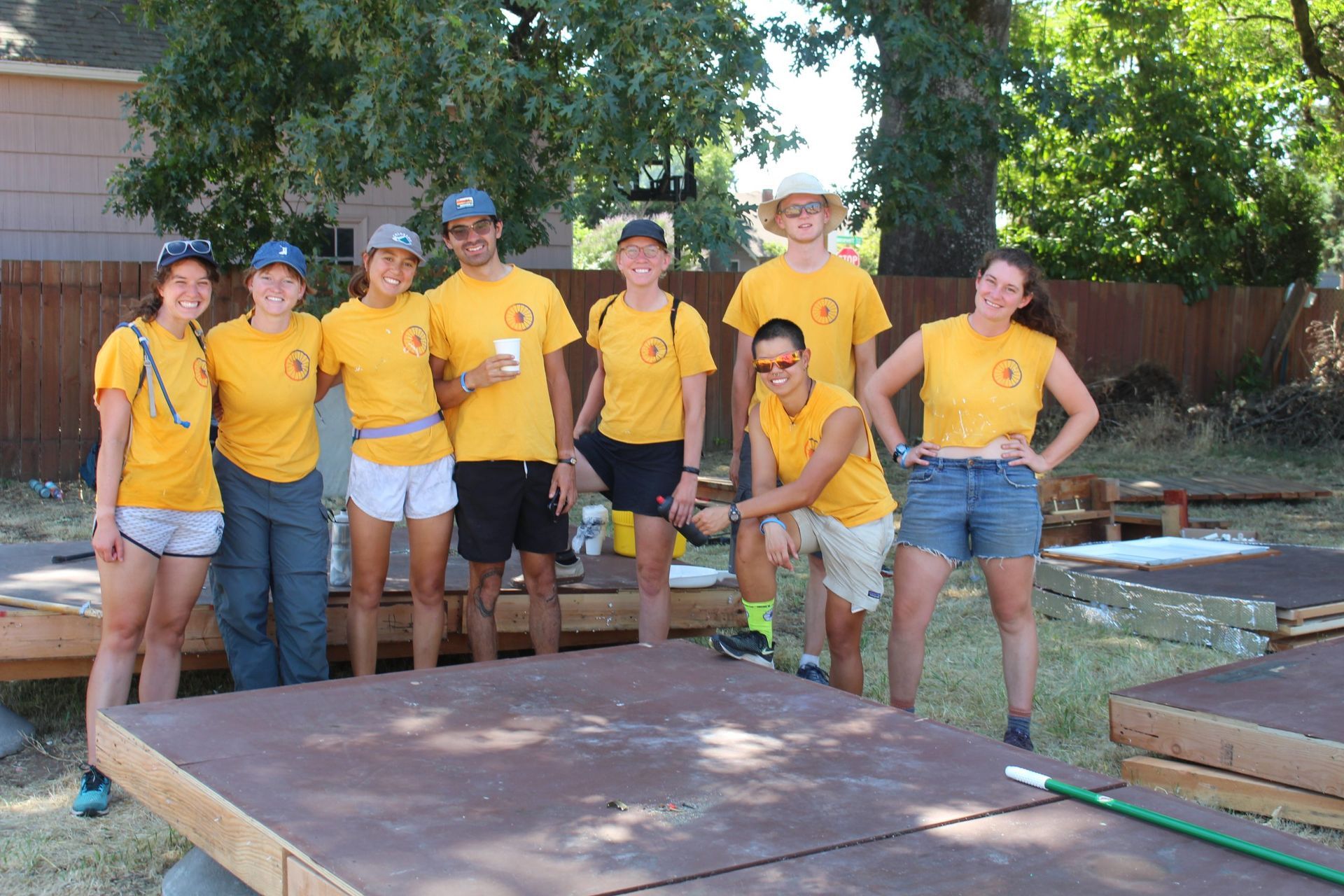
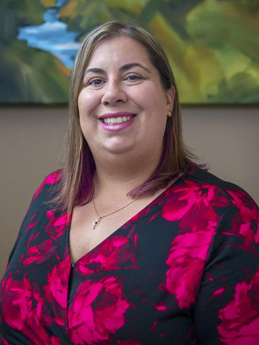
Community Supported Shelters
1160 Grant Street
Eugene, OR 97402
Public Office Hours:
Tue-Fri, 1-4 p.m.
Finance and Tax Information
We are a 501(c)(3) organization, and you may take a tax deduction to the full extent allowed by law for your contribution to us.
(EIN#: 46-2377054)
Newsletter
To stay connected to CSS and learn about upcoming events, subscribe to our quarterly newsletter.
All Rights Reserved | Community Supported Shelters | This site is powered by Neon One


